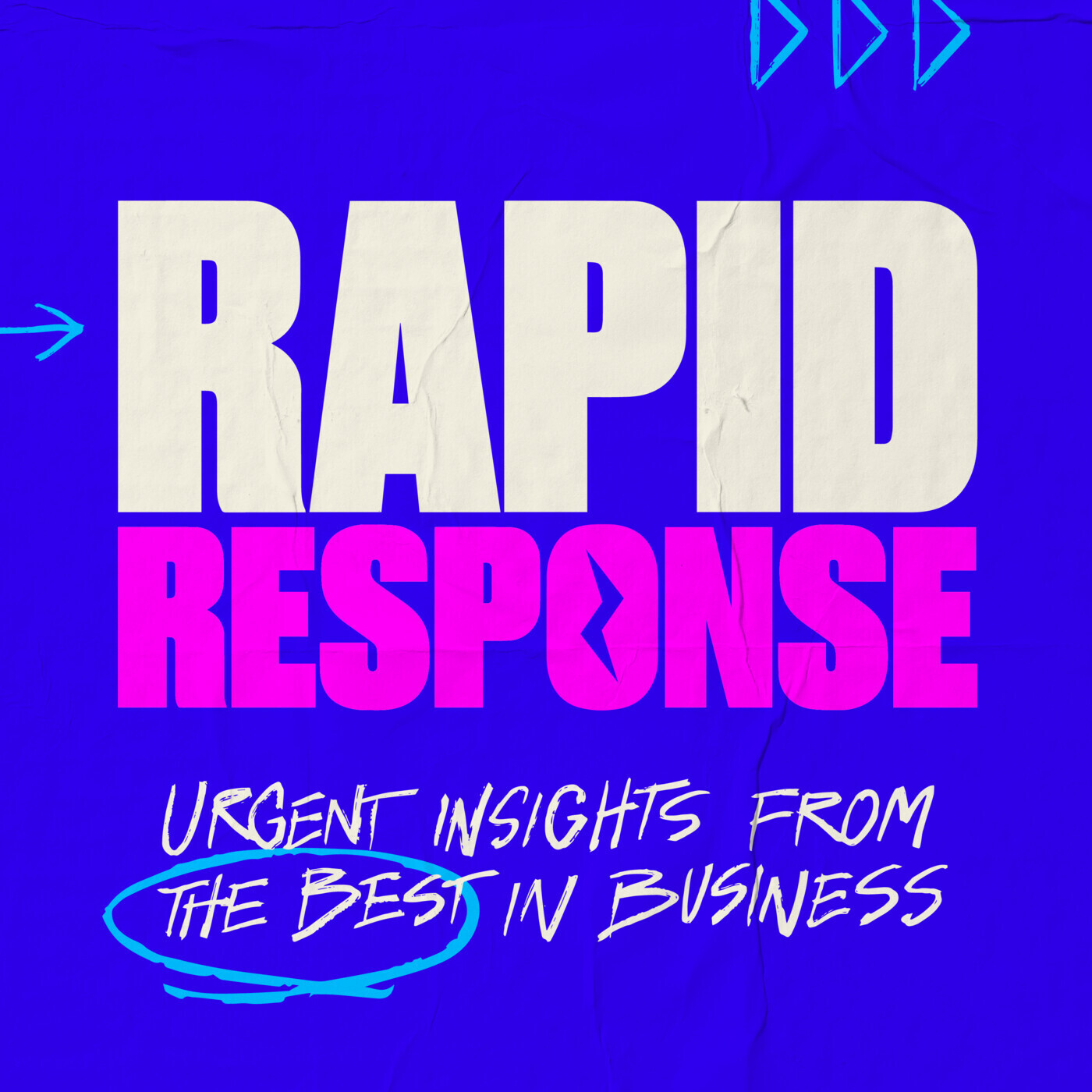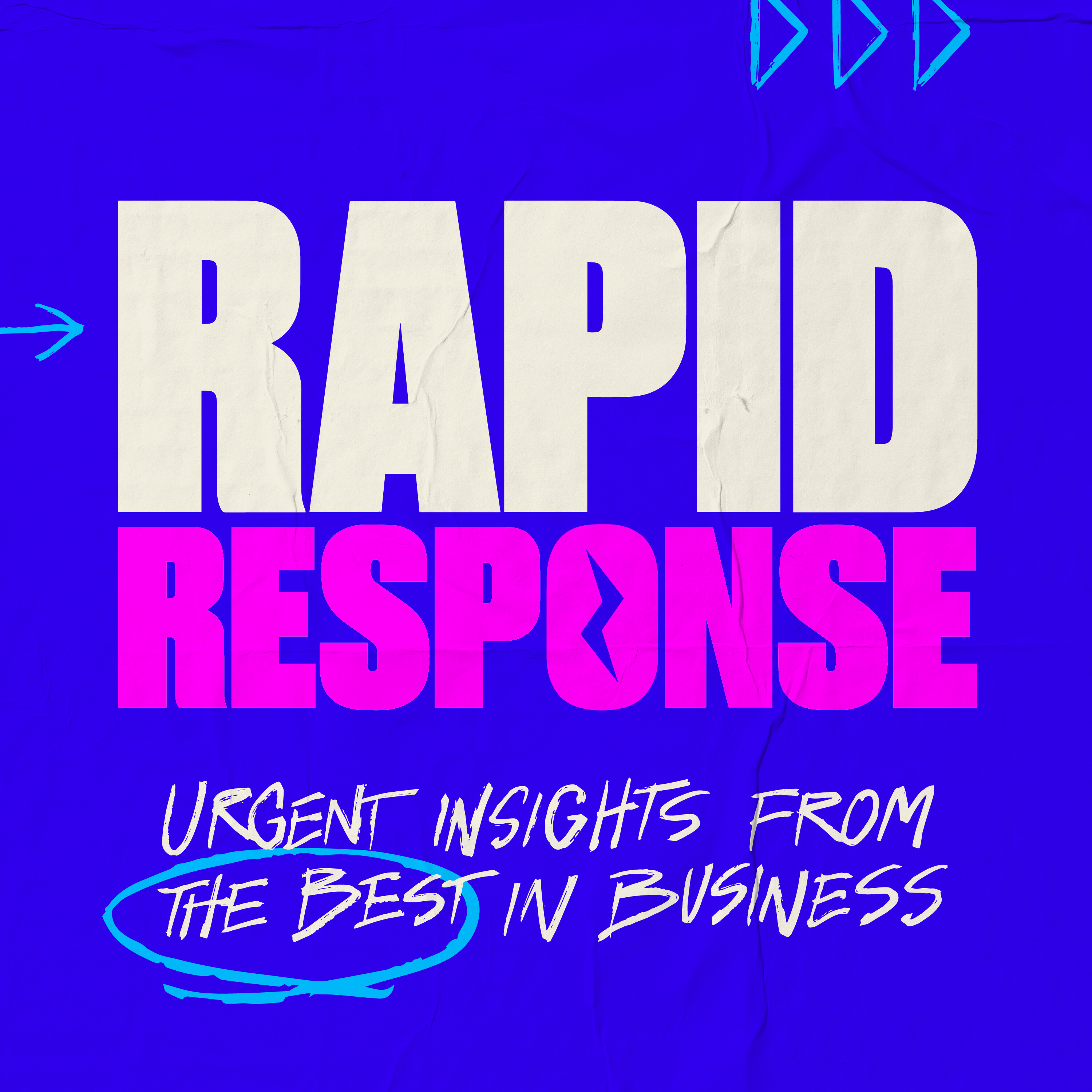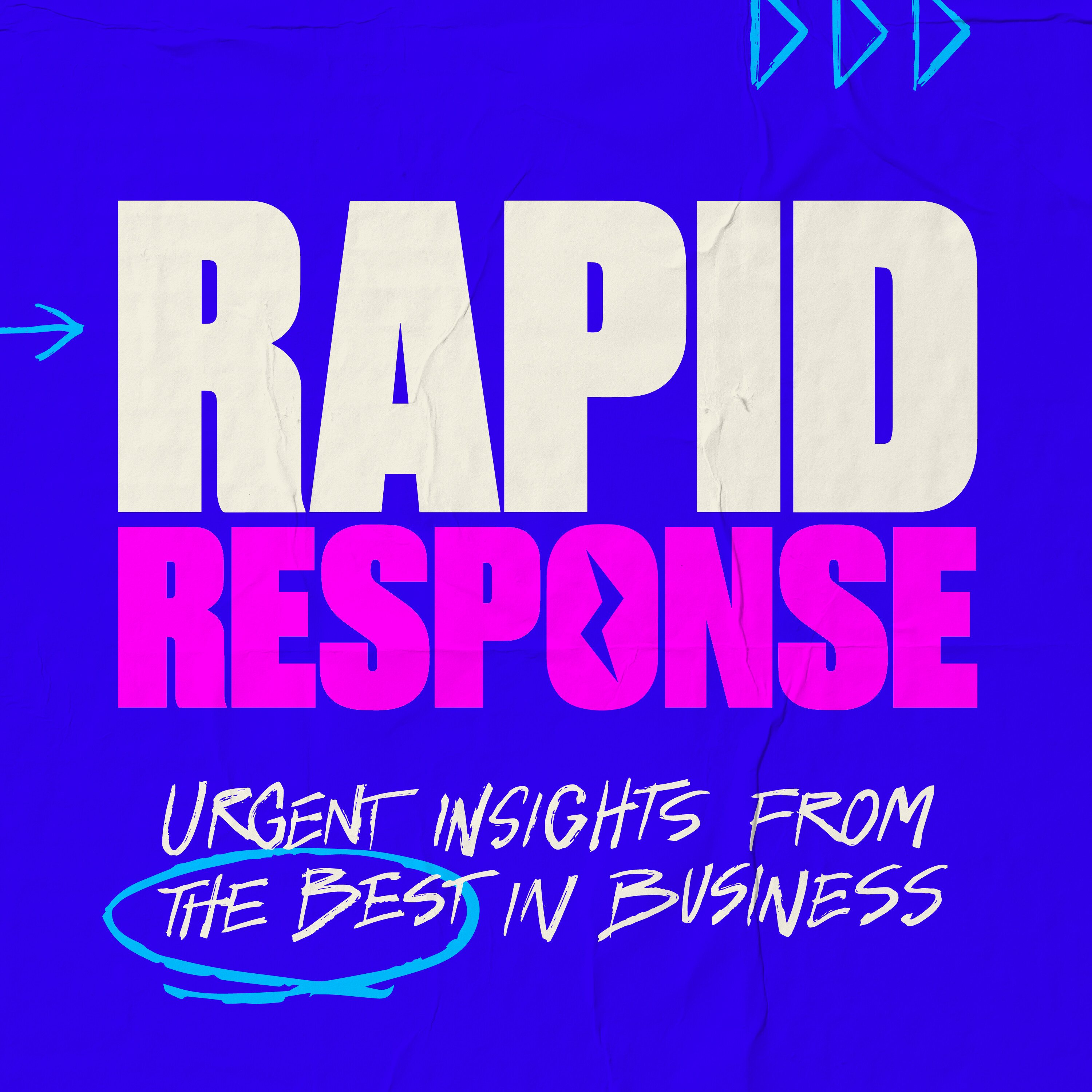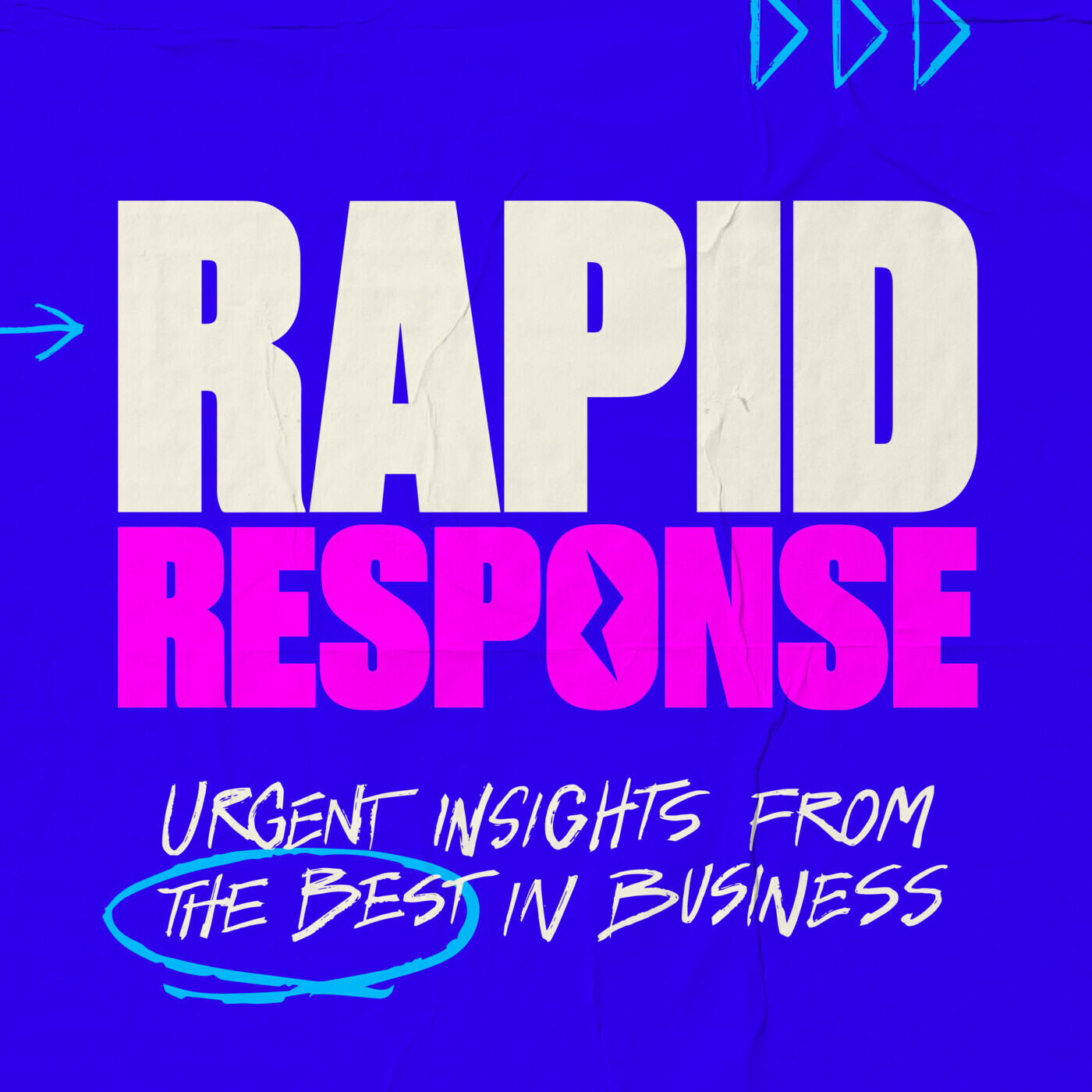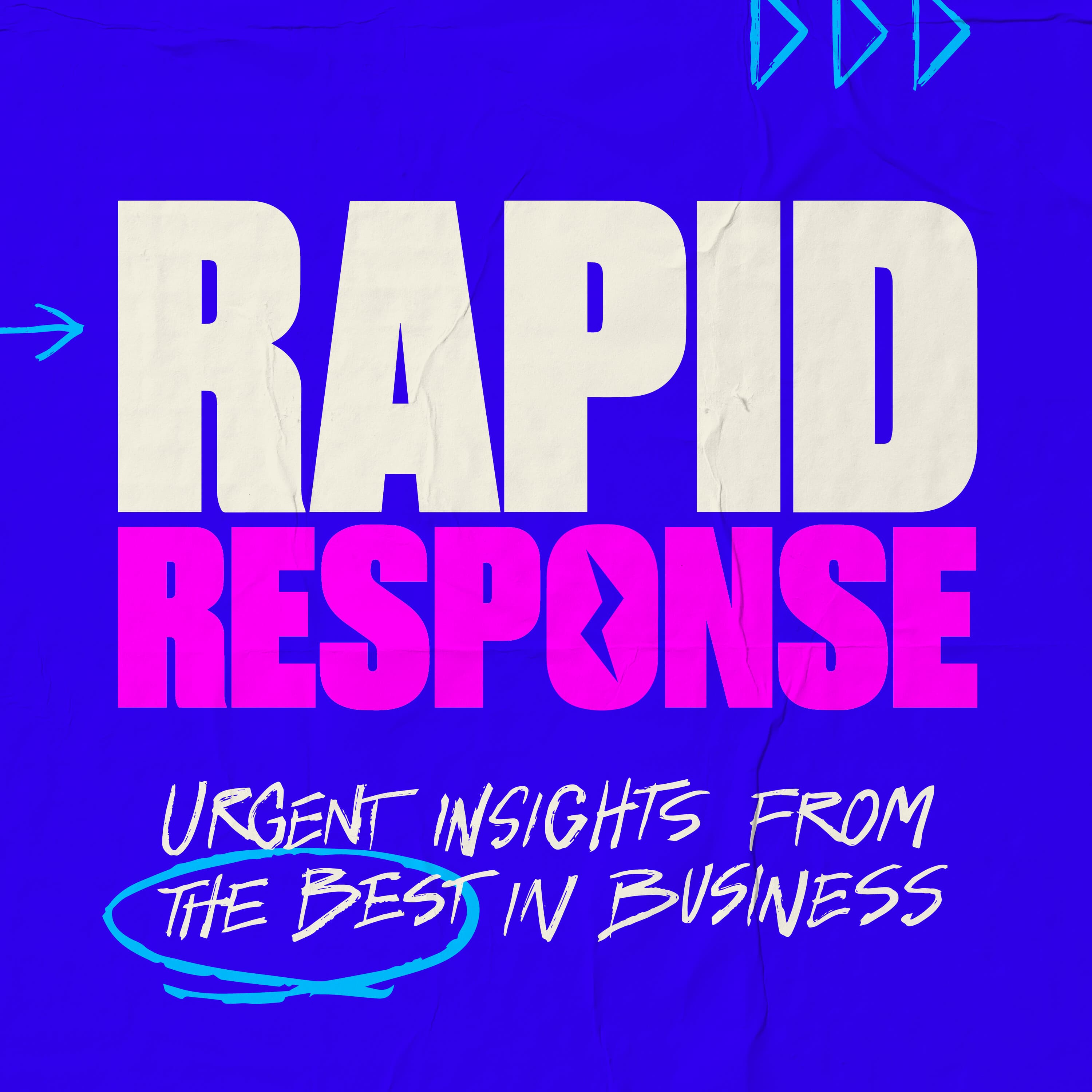
October 22, 2024 • 28min
Rapid Response: Ken Burns on Leonardo da Vinci, AI, and the future of storytelling
Masters of Scale
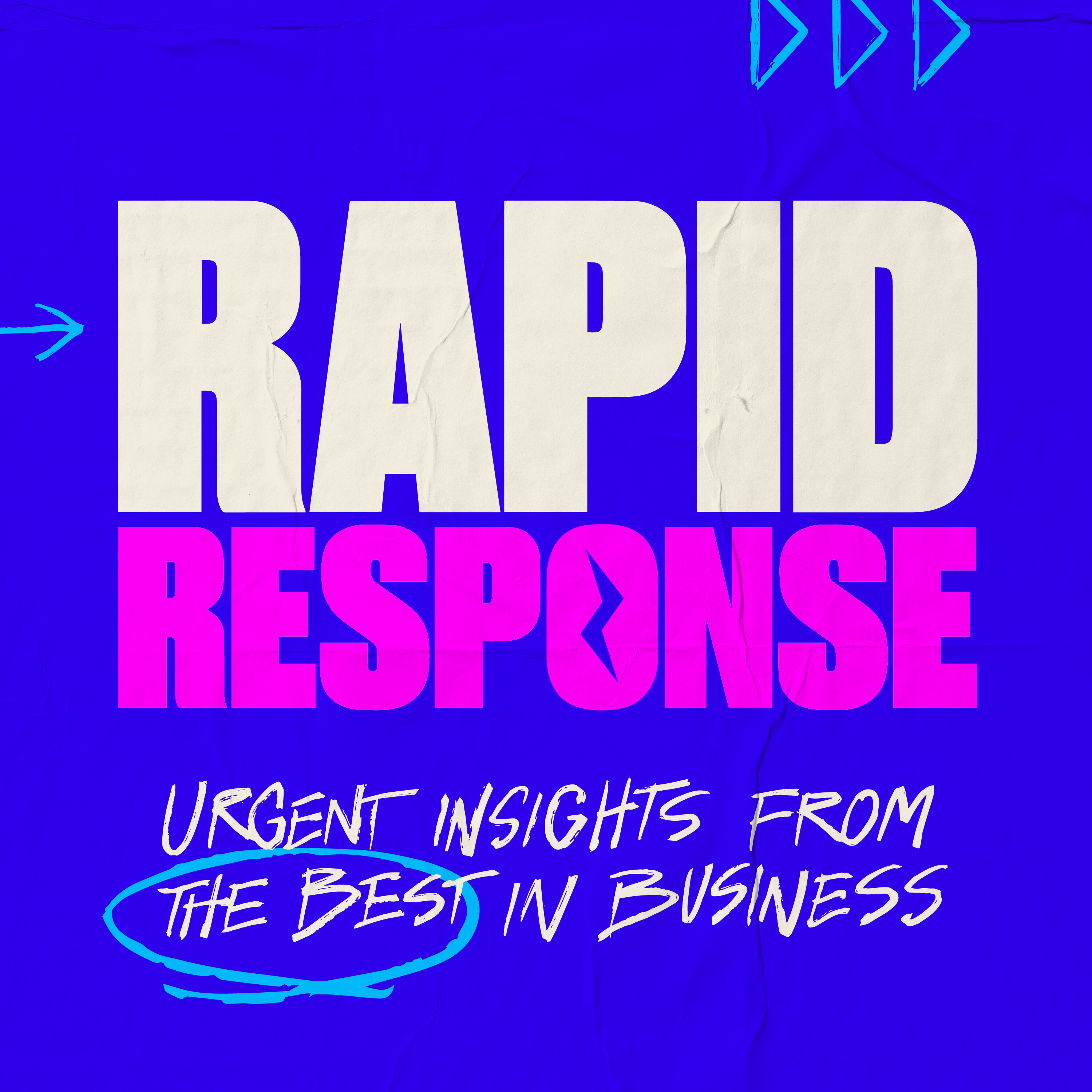
Key Takeaways
- Leonardo da Vinci is surprisingly modern and relevant despite living hundreds of years ago. His interdisciplinary approach combining art, science, and innovation offers lessons for leaders today.
- Ken Burns avoids using AI and other technological shortcuts in his filmmaking, preferring a hands-on, labor-intensive approach to maintain creative control and quality.
- Studying history and humanities is crucial for developing critical thinking, ethics, and communication skills needed in business and leadership roles.
- Public broadcasting like PBS plays an important role in producing high-quality, unbiased content without commercial pressures.
- Maintaining optimism and enthusiasm is important despite challenges, as human ingenuity has overcome crises throughout history.
Introduction
Ken Burns, the renowned documentary filmmaker, joins Rapid Response to discuss his upcoming project on Leonardo da Vinci and share insights on creativity, technology, and learning from history. Burns reflects on his filmmaking process, the relevance of historical figures like da Vinci to modern leaders, and the importance of humanities education alongside STEM fields. He also discusses the role of public broadcasting and maintaining optimism in challenging times.
Topics Discussed
Leonardo da Vinci's Relevance Today (3:26)
Burns explains why he chose Leonardo da Vinci as the subject for his first non-American documentary:
- Da Vinci is "as modern as anybody we've ever come across" despite living centuries ago
- His interdisciplinary approach combining art, science, and innovation is inspiring and relevant today
- Da Vinci's work raises important questions about purpose, legacy, and human potential
"We don't have technologists steeped in art. We don't have that many artists who themselves understand that the scientific dynamic is an important one to include," Burns notes, highlighting the need for more interdisciplinary thinking like da Vinci's.
Filmmaking Process and Avoiding Technological Shortcuts (11:11)
Burns discusses his approach to filmmaking and views on using AI and other new technologies:
- Prefers a hands-on, labor-intensive approach rather than relying on technological shortcuts
- Waited to adopt computer editing and digital filming to maintain creative control
- Skeptical of using AI to generate scripts or content
- Values the discovery process and "real thing" over shortcuts
"You don't want the technological tail to wag the dog. It has to be controlled in some way," Burns states, emphasizing the importance of human creativity and judgment.
Balancing Ideas and People in Historical Narratives (13:05)
Burns reflects on different approaches to studying and presenting history:
- Combines multiple historiographical approaches rather than focusing solely on "great person" narratives or abstract ideas
- Uses storytelling to convey complex, sometimes contradictory historical realities
- Aims to avoid overly simplistic binary framings of history
"What if you could do all of them? What if you could go back and use narrative, which nobody can ever abandon?" Burns asks, advocating for a multifaceted approach to historical storytelling.
Maintaining Objectivity and Integrity in Documentaries (15:33)
Burns discusses the challenges of objectivity and maintaining integrity in documentary filmmaking:
- Emphasizes the importance of editorial independence from subjects
- Criticizes documentaries where subjects or their families are executive producers
- Values the "church and state" separation maintained at PBS
- Stresses the importance of who makes editorial decisions in shaping the final product
"I can't have Michael Jordan sitting in my editing room saying, 'Don't use that shot,'" Burns explains, highlighting his commitment to editorial integrity.
The American Revolution Project and Modern Parallels (21:51)
Burns discusses his upcoming project on the American Revolution and how current events influence historical interpretation:
- Generally avoids changing historical narratives based on current events
- Made an exception for his Holocaust documentary to include references to January 6th and modern threats to democracy
- Believes historical events often "rhyme" with present situations due to unchanging human nature
"The fragility of these seemingly durable structures and institutions is laid bare in a Holocaust," Burns notes, drawing parallels between historical events and current challenges to democratic institutions.
The Future of Public Broadcasting (24:32)
Burns reflects on the role and future of PBS in the media landscape:
- Values the freedom and long-term perspective PBS provides
- Sees PBS as a "tortoise" compared to more sensationalist "hare" media
- Believes there's still a strong audience for in-depth, high-quality content
"It's not sexy, right? I mean, I admit it, right? But it's the tortoise," Burns says, defending the slower but more thorough approach of public broadcasting.
The Importance of Humanities Education (25:37)
Burns argues for the value of humanities education alongside STEM fields:
- Shares anecdote about business leader valuing humanities skills in MBA graduates
- Believes understanding history, ethics, and communication is crucial for business leaders
- Advocates for adding "A" (Arts) to STEM to make it "STEAM"
"They don't know humanities. They don't know history. They don't know how to write a letter that's a page and a half long. They don't know about ethics," Burns recounts a business leader's concerns about MBA graduates lacking humanities education.
Maintaining Optimism in Challenging Times (27:58)
Burns discusses how he maintains optimism despite studying difficult historical periods:
- Draws hope from seeing how humans have overcome past crises
- Acknowledges current challenges to democracy are serious
- Believes in human resilience and creativity
"Neither you nor me nor anyone listening to the sound of our voices get out of here alive. And we could understandably be in a fetal position, wrapped on the floor. But we don't. We raise children, we write symphonies, we tend gardens," Burns says, explaining his source of optimism.
Conclusion
Ken Burns offers a unique perspective on the intersection of history, creativity, and leadership in this wide-ranging conversation. His insights on Leonardo da Vinci's enduring relevance highlight the importance of interdisciplinary thinking and lifelong curiosity for modern leaders. Burns' commitment to thorough, hands-on filmmaking serves as a counterpoint to the rush towards AI and technological shortcuts in creative industries. His defense of public broadcasting and humanities education underscores the ongoing need for in-depth, nuanced exploration of ideas in our fast-paced media landscape. Finally, Burns' ability to maintain optimism while studying challenging historical periods offers an inspiring model for leaders navigating today's complex global issues.

